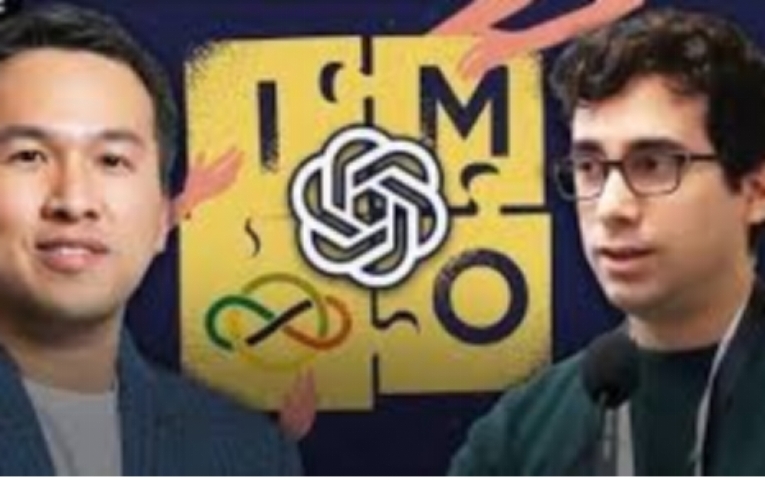
Recently, the technology community has been in an uproar due to a statement from OpenAI. OpenAI claimed that its internal model won the gold medal in the International Mathematical Olympiad (IMO), but this news was quickly questioned by many parties, and was accused of violating regulations and exaggerating publicity, and was deeply caught in the whirlpool of public opinion of "self-proclaimed gold medal".
As the world's most prestigious mathematics competition for middle school students, the International Mathematical Olympiad is highly respected for its authority and fairness. In this year's competition, OpenAI couldn't wait to announce that its model had won the gold medal as soon as the closing ceremony ended, saying that it answered five of the six questions correctly and scored 35 points (the gold medal line is 35 points). This high-profile move instantly attracted global attention, but soon caused a lot of controversy.
An IMO insider revealed that in order to prevent AI companies from over-exposing themselves and stealing the limelight from human students, the organizing committee had explicitly required AI companies participating in the test to announce the results one week after the closing ceremony, that is, after July 28. However, OpenAI blatantly violated this rule and released the results before the closing party was over. In response, OpenAI research scientist Norm Brown said that the team released the results after the closing ceremony, and communicated with an organizer in advance and acted according to his advice, but no one told them that they could only release it "a week later." However, this explanation did not calm the public anger. Netizens accused OpenAI of lacking respect for the competition rules and human players, and only trying to attract attention and create topics.
The controversy is not only about the release time, but also the authenticity of the gold medal has been seriously questioned. Don Luang, head of research at Google DeepMind, pointed out that the IMO organizing committee has an official scoring standard that is not open to the public, and any medal declaration that is not based on this standard is invalid. According to the correct scoring standard, OpenAI's score should be a silver medal instead of a gold medal. Joseph Myers, a member of the IMO organizing committee, also said that OpenAI was not one of the AI companies that cooperated with IMO to test the model, and none of the 91 official coordinators participated in the evaluation of the results of the OpenAI model. This means that OpenAI's gold medal results lack official endorsement and are only a unilateral claim.
Fields Medal winner Terence Tao also joined the debate. He made three consecutive comments, emphasizing that he would not comment on any AI competition results report that did not disclose the test method in advance. He believes that in the absence of a controlled test environment, the mathematical ability of AI is difficult to accurately evaluate. Ernest Liu, a professor of applied mathematics at the University of California, Los Angeles (UCLA), analyzed that OpenAI's answers to the first five questions of IMO were basically correct, but difficult questions such as the sixth question that require creative thinking exposed the limitations of the current AI model. This shows that although AI has shown strong capabilities in some aspects, it is far from replacing mathematicians.
Looking back at OpenAI's past, it has always been relatively radical in commercial promotion. From the early popularity of ChatGPT to the current rush to claim the IMO gold medal, it seems that they always pursue huge exposure in the short term. Google DeepMind behaved completely differently in this incident. Although it may have achieved gold medal-level results, it chose to comply with IMO requirements and quietly waited for the right time to announce the results. The comparison between the two highlights the inappropriateness of OpenAI's behavior this time.
This incident not only damaged OpenAI's reputation, but also triggered people's thinking about the conflict between commercial hype and academic ethics in the AI industry. AI technology is developing rapidly. When displaying results, companies should follow basic ethics and rules and respect the authority of traditional academic competitions. Otherwise, even if it attracts attention in the short term, it will damage its own image and industry credibility in the long run. With the in-depth application of AI in various fields, it is urgent to establish a more complete and standardized evaluation and display mechanism. Only in this way can we ensure the healthy and orderly development of AI technology and win the true trust of the public.

According to a recent report by Rich Asplund, a columnist for Barchart, the global sugar market is currently experiencing a complex and profound supply-demand game.
According to a recent report by Rich Asplund, a columnist f…
On January 13th local time, the three major US stock indice…
Recently, the 2026 edition of the MIT Technology Review lis…
On January 15, 2026, the US military announced the seizure …
At the 2026 J.P. Morgan Healthcare Conference, a joint anno…
For much of 2025, the market was rethinking whether the dol…